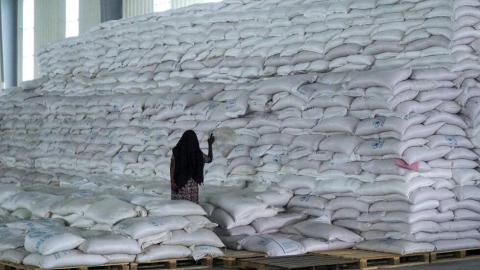
Ethiopia has further intensified the pressure on the country’s restive northern Tigray region by moving to replace the local leadership with a new centrally imposed administration.
The move comes amid clashes between Tigrayan and national military forces that have brought Africa’s second most populous nation to the brink of what analysts say could be a long drawn-out and bloody civil war.
The UN secretary general, António Guterres, has called for an immediate de-escalation of tensions and a peaceful resolution to the dispute but there currently appears to be little desire to talk on either side.
In a statement on Saturday, Abiy Ahmed, who won the Nobel peace prize last year for ending a long-running conflict with neighbouring Eritrea, said “criminal elements cannot escape the rule of law under the guise of seeking reconciliation and a call for dialogue”.
“Our operation aims to end the impunity that has prevailed for far too long and hold accountable individuals and groups under the laws of the land,” Abiy said.
The vote on Saturday by the upper house of parliament now gives Abiy the power to replace a Tigray leadership his government regards as illegal.
A statement posted on the Facebook page of the Tigray government said it would win the “justified” war, and added that “a fighter will not negotiate with their enemies”.
“Tigray’s people are now armed with modern weaponry that could reach the seat of the infidels,” it added, an apparent reference to Ethiopia’s capital, Addis Ababa.
The government of Abiy Ahmed launched military operations in Tigray on Wednesday, after the prime minister accused local leaders from the Tigray People’s Liberation Front (TPLF) of attacking a military camp in the region and attempting to loot military assets.
The TPLF denies the attack and has accused Abiy of concocting the story to justify deploying the military.
Diplomats in Addis Ababa say there have been casualties on both sides, but with internet and phone connections in Tigray cut there was no confirmation or details of the reports.
Experts and diplomats are watching in dismay as two heavily armed forces clash in one of the world’s most strategic yet vulnerable regions, the Horn of Africa. Observers warn that a civil war in Ethiopia, Africa’s second most populous country with 115 million people, could destabilise fragile neighbours such as Sudan, Eritrea and Somalia.
The TPLF dominated the country’s military and government for almost 30 years before Abiy took office in 2018. However, the sweeping political reforms that the new 44-year-old prime minister pushed through in his first months of power left the TPLF feeling marginalised, and it broke away last year when Abiy sought to turn the coalition into a single party called Prosperity.
Tensions rose in recent weeks as the Tigray region, objecting to the delay of the national election until next year after the Covid-19 outbreak, held a local poll in September that the federal government called illegal.
The fighting began early on Wednesday when Abiy accused the TPLF forces of attacking a military base in Tigray. In an escalation on Friday, Abiy announced that airstrikes in locations around the Tigray capital “completely destroyed rockets and other heavy weapons” and made a retaliatory attack impossible.
The military operations will continue, the prime minister said, and he warned the Tigray population: “In order to avoid unexpected peril, I advise that you limit group movements in cities.”
The Tigray region is home to a large portion of the federal military personnel and the location of much of its equipment, a legacy of Ethiopia’s 1998-2000 border war with Eritrea, its northern neighbour.
Some analysts estimate that Tigray could muster more than half of the armed forces’ total personnel and mechanised divisions, meaning that neither side could be confident of a swift victory.
Experts fear a protracted and disastrous conflict that could “seriously strain an Ethiopian state already buffeted by multiple grave political challenges, and send shockwaves … beyond”.
“A war that many Ethiopians feared was possible but hoped would never happen appears to be under way … Unless urgently halted [it] will be devastating not just for the country but for the entire Horn of Africa,” the International Crisis Group said in a briefing on Thursday.
Aid groups warn of a potential humanitarian disaster.
“We are deeply concerned that a military escalation in northern Ethiopia could trigger a wider humanitarian emergency in which people are displaced from their homes and unable to meet their basic needs,” said Katia Sorin, the head of delegation for the International Committee of the Red Cross in Ethiopia.











